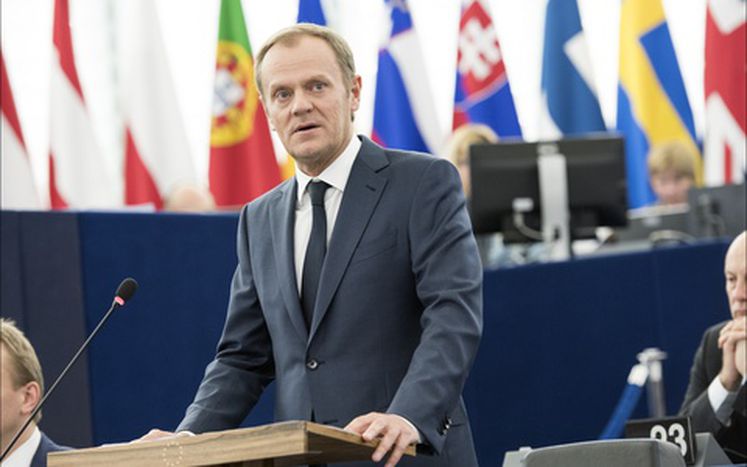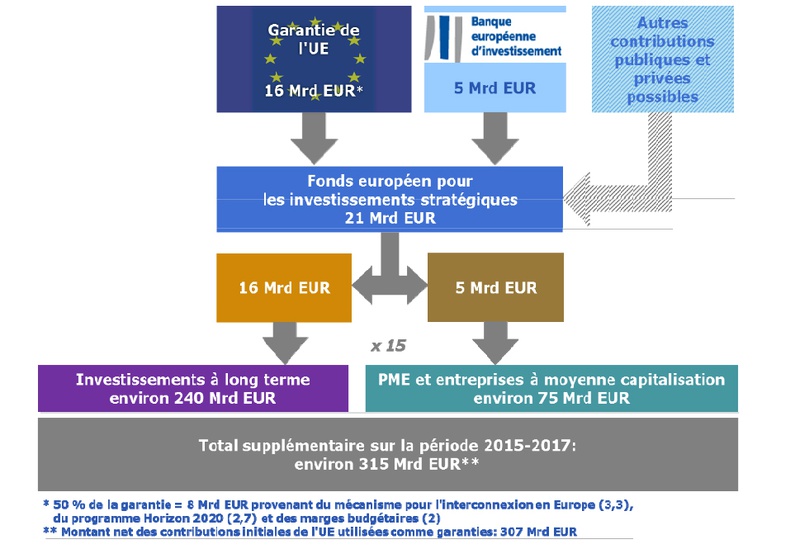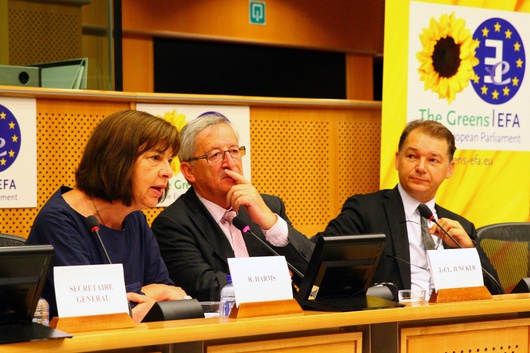
Tusk defends the Juncker plan before the European Parliament
Published on
Translation by:
Una DimitrijevicOn January 13th, the new President of the European Council, Donald Tusk, spoke in support of the outcomes from the first European summit meeting. Next to issues like Ukraine and Charlie Hebdo, the Juncker plan took prominent place in the speech of the new President of the European Council.
The second and new President of the European Council, the Polish national Donald Tusk, stood up in front of the European Parliament on January 13th, to support the outcomes of the first European summit under his mandate since last December
Thus, after a short tribute to the victims of the Charlie Hebdo and Porte de Vincennes terrorist attacks, Donald Tusk made a point of elucidating his position regarding the new “light” version of the European summit, which he summarised with a few stinging words: “To defend everything is to defend nothing. If you have ten priorities, you have none”. Hence the decision to include only two items on the meeting agenda: the investment plan and relations between the EU and the Ukraine.
Without doubt, the king's share of the debate was given over to the investment plan. “The Investment Plan is not a silver bullet. But if anyone has an idea how to overcome the crisis with one stroke, please speak up”, the Pole declared in English during his intervention before the European Parliament.
A little later, he had to leave behind the language of Shakespeare in favour of his own, so as to better wield the sword of rhetoric and clearly set out the plan of the SIEF. He then advised that projects would be selected on economic, and not political criteria. “All Member States were in favour of the criteria and the decision making process being in the hands of managers and experts rather than politicians. Hence, the key role in deciding how to allocate money will be in the hands of people who really know the subject, specifically banks, and who will be aware of the best way to guarantee growth and job creation across Europe.” he affirmed confidently in front of the parliament.
The Juncker plan: what the heck?
But hold on, what exactly is the Juncker plan? On November 25th, the Commission presented an investment plan of more than 300 billion euros which had been announced by Jean-Claude Juncker in July; a plan on which he had greatly capitalised on order to secure the votes of the social democrats at the time.
The project, as disclosed by Jyrki Katainen, Executive Vice-President in charge of employment, growth, investment and competitiveness, is nevertheless rather disappointing. The European Investments Funds will not strictly speaking be equipped with 315 billion euros, as promoters and detractors of the project may be shouting at the top of their voices, but with a 21 billion euro capital, 5 billion euros of which are coming from the European Investment Bank (EIB), in addition to a guaranteed provision of 8 billion euros from existing European funds which could rise to16 billion. The declared aim is to create a fifteen-fold multiplier effect, i.e. one euro guaranteed by the funds would make it possible to raise 15 euros of private investments, or 315 billion euros in total. Of course, the Member States are always free to put more money on the table.
 Thus, the plan would finance some large, already listed projects , but also those of a smaller scale, supported by SMEs. According to the statements of the plan's instigator, it is above all of a solidarity fund intended for southern countries and those in difficulty. The Funds are hence directed by a Board of Directors with parity between the Commission and the European Investment Bank. No quota by country is in fact envisaged, relying largely on federalism rather than on intergovernmentalism. The other aim is to modernise proceedures within the EIB, which is considered by many to be too timid in its investments, targeting in priority less risky projects.
Thus, the plan would finance some large, already listed projects , but also those of a smaller scale, supported by SMEs. According to the statements of the plan's instigator, it is above all of a solidarity fund intended for southern countries and those in difficulty. The Funds are hence directed by a Board of Directors with parity between the Commission and the European Investment Bank. No quota by country is in fact envisaged, relying largely on federalism rather than on intergovernmentalism. The other aim is to modernise proceedures within the EIB, which is considered by many to be too timid in its investments, targeting in priority less risky projects.
Between disappointment and fear
 The project seems paved with good intentions. In the eyes of some, it is rather fraught with difficulties. Certain Eurodeputies, like Philippe Lamberts, president of the Greens/EFA group in the European Parliament, even question the plan's effectiveness. “It is difficult to believe that with 21 billion already on the table, we will be able to mobilise 315 billion euros”, he declared in an official statement. According to him, it would be more effective to fight tax evasion and to reinject the colossal sums thus recovered into the economy.
The project seems paved with good intentions. In the eyes of some, it is rather fraught with difficulties. Certain Eurodeputies, like Philippe Lamberts, president of the Greens/EFA group in the European Parliament, even question the plan's effectiveness. “It is difficult to believe that with 21 billion already on the table, we will be able to mobilise 315 billion euros”, he declared in an official statement. According to him, it would be more effective to fight tax evasion and to reinject the colossal sums thus recovered into the economy.
For many experts, the plan's methods reproduce errors already present in current plans: the financial risks will have to be assumed by the public in order to attract more private funds. Thus, if a project ends in commercial failure, it will once again be the same public funds left running to its aid, in accordance with a well-known ancient rule which says that we must socialise losses and privatise profits.
Another risk is that of financing large projects whilst underestimating their social and environmental costs, the likes of the Sivens dam or the Notre-Dame-des-Landes airport which threaten small local producers and protected biotopes.
Some worry about the EIB taking on such a role, like Xavier Sol of the NGO Counter Balance, who spoke to Médiapart last December. According to him, the bank has been accumulating weaknesses. The decision-making process has not evolved since its creation at the end of the 1950s: the management committee wields full power, without the Member States presenting any real counter-power. The bank's activities remain largely opaque. It is for example difficult, according to Sol, to obtain a list of backed SMEs. The reports that it publishes remain vague, which prevents a precise evaluation of the real impact of its activities on the economy. Lastly, there is the problem of human ressources: “today the EIB lends twice as much as the World Bank, with three times less personnel” Xavier Sol affirms.
Translated from Tusk fait le service après-vente du plan Juncker au Parlement européen



